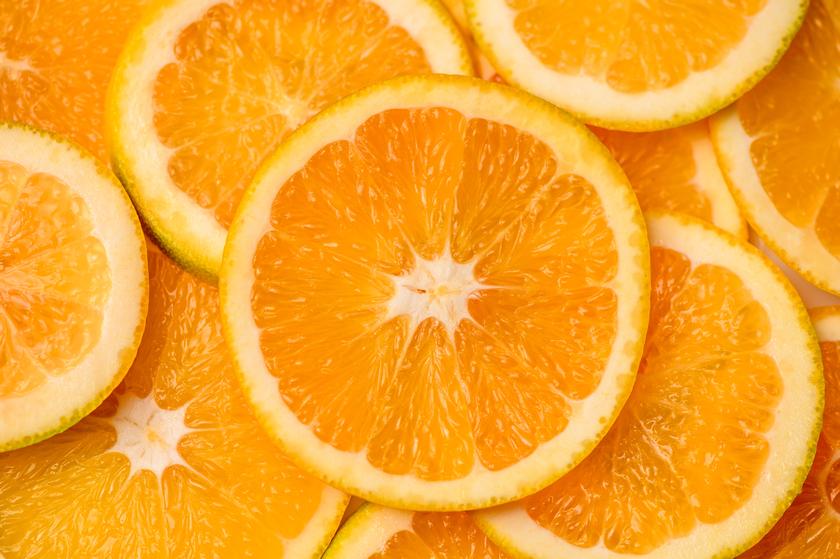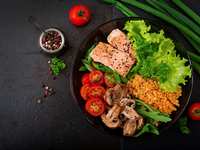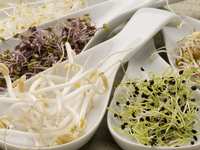- Categories :
- More
Effective Ways to Combat Allergy Season with Food

During allergy season, it’s not just pollen irritating you, but —certain foods can contribute to sneezing, stuffy noses, watery and itchy ears and irritated throats. But there’s also good news: other foods may fight off symptoms.
So before hitting your medicine cabinet, open your fridge, says Chioma Azolibe, MD, primary care physician at Memorial Hermann Medical Group Katy. “Keeping well-nourished and well-hydrated is important to helping you feel better.”
Fresh healthy foods bolster your body’s immune system, Dr. Azolibe says. Also, pumping up your volume of water helps prevent pollen and mold mucus from clogging nasal passages and improves allergy symptoms.
How much water is enough? Take your weight, divide by two and drink at least that number of ounces daily.
Eating strategically also can arm you against the histamine reaction that occurs when your immune system encounters airborne materials and pegs them as enemies. This triggers antibodies—antihistamines—to fight them.
Foods to seek:
- Omega-3 Fatty Acids: Strive for 8 ounces of oily fish weekly, such as salmon, mackerel or albacore tuna. Or eat a handful of walnuts or just a tablespoon of ground flax seeds. WHY: Omega-3 fatty acids are believed to combat the inflammation associated with seasonal allergies.
- Spices: Season foods with turmeric, onions and ginger. WHY: Turmeric contains curcumin, a natural anti-inflammatory that cuts swelling and soreness while revving up your immune response. Turmeric can perk up a dish or be taken as a pill or through a dropper. Onions not only slash inflammation, but they also contain quercetin, among nature’s antihistamines. The phytochemicals in ginger similarly may suppress swelling.
- Vitamins C: Eat tangerines, grapefruit, lemons, limes, sweet peppers, cantaloupe and broccoli. WHY: Vitamin C boosts your immune system and soothes irritation of the upper respiratory tract caused by pollen from blooming plants.
“Everything has to be eaten in moderation,” Dr. Azolibe says. “These supplement your diet.”
Possible foods to skip:
- Bee Pollen: “Claims of benefits have not been supported by studies,” she says.
- Probotics: “While these may boost your gut health and overall immune system, there is no prescription for seasonal allergies,” Dr. Azolibe says.
Food fails:
Some fruits and nuts have similar protein found in pollen. When eaten, the body’s immune system recognizes this almost identical protein in these foods and generates an allergic response, she says.
Not everyone experiences this cross-reaction, but the common culprits are celery, melon, oranges, tomatoes, artichoke, apples, pears, cherry, banana, almonds, peanuts and hazelnuts.
But you don’t need to cut these out entirely. “You can have them—and you should eat your fruits and vegetables,” Dr. Azolibe says. “Wash fruit thoroughly and cook or bake these ingredients to reduce a cross reaction.”
She also recommends keeping a food diary to help determine whether any foods spark symptoms.
What else to do:
If you still suffer despite adding, modifying and removing some foods, see your primary care physician. Discuss over-the-counter allergy medications, use of nasal corticosteroids or the need for an allergy shot with your doctor.
If symptoms continue, you may be referred to an allergist.
If you need a primary care physician, click here.


















